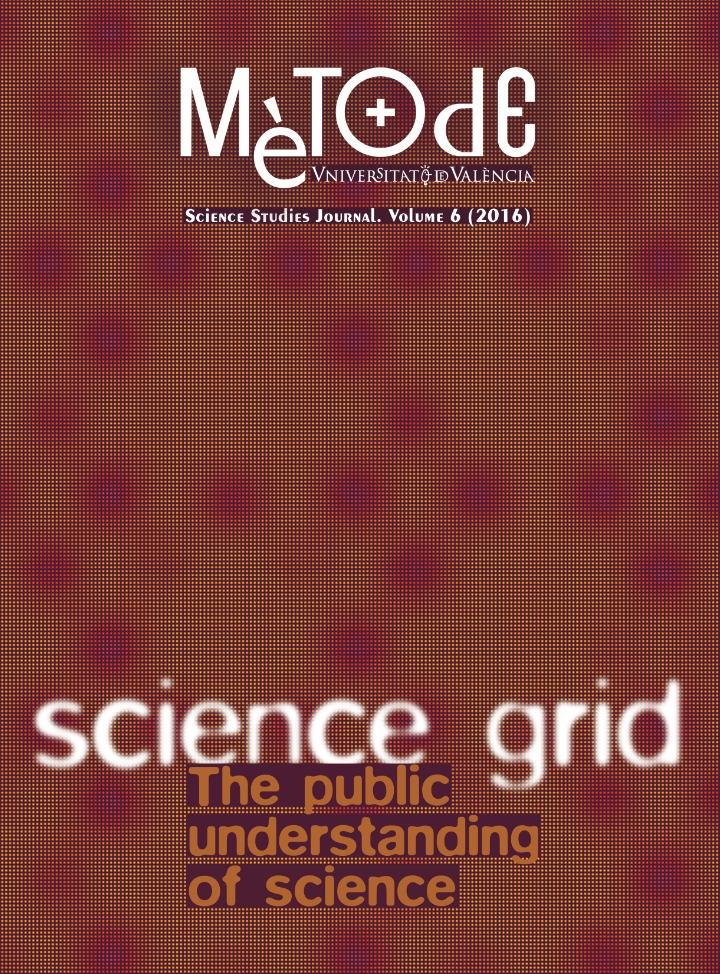Green taxes, quotas and equality: Preserving social justice whilst averting climate change
DOI:
https://doi.org/10.7203/metode.6.4318Keywords:
climate change, carbon quotas and taxes, regressive taxes, inequality, green fiscal reform Abstract
Abstract
The need for green fiscal reform is urgent in the face of climate change. Some oppose it, however, arguing that such reforms disproportionately burden poorer individuals whose emissions are far smaller than those of wealthier individuals. Defusing these criticisms, this paper argues that this is not an inevitable feature of green fiscal reform. We should adopt a more scientific attitude not only towards climate change but towards testing fiscal proposals to mitigate it, and avoid dividing, with rushed assumptions, responsible voters who care about both equality and climate change.
 Downloads
Downloads
 References
References
Casal, P. (2007). Why sufficiency is not enough. Ethics, 117, 296–326. doi: 10.1086/510692
Cramton, P., & Stoft, S. (2010). Price is a better climate commitment. The Economists’ Voice, 7(1). doi: 10.2202/1553-3832.1718
Fellows, J. A. (1994). Consumption taxes. A view of future tax reform in America. The CPA Journal, 64. Retrieved from http://links.uv.es/UkECf59
Frank, R., & Cook, P. J. (1995). The winner-take-all society. New York: Free Press.
Galle, B. (2011). Is cap and trade fair to the poor? George Washington Law Review, 79, 33–110.
Gibbs, T., & Retallack, S. (2006). TradingUp: Reforming the European Union’s emissions trading scheme. London: IPPR.
Goodin, R. (1994). Selling Environmental Indulgencies. Kyklos, 47(4), 573–596.
Hanemann, M., Labandeira, X., & Loureiro, M. (2011). Climate change, energy, and social preferences on policies. Climate Research, 48(2–3), 343–348. doi: 10.3354/cr00994
Hansen, J. (2009). Storms of my grandchildren. London: Bloomsbury.
House of Commons Environmental Audit Committee. (2008). Personal carbon trading. Fifth report of session 2007-08. London: The Stationery Office Limited. Retrieved from http://links.uv.es/Lzqd9XA
McCaffery, E. (1992). Tax policy under a hybrid income-consumption tax. Texas Law Review, 70, 1149–1181.
Pearce, D. (1995). World without end. London: Earthscan.
Piketty, Th. (2014). Capital in the Twenty-First century. Cambridge, MA: The Belknap Press of Harvard University Press.
Poterba, J. M. (1991). Is the gasoline tax regressive? National Bureau of Economic Research. Tax Policy and the Economy, 5, 145–164. doi: 10.3386/w3578
Sandel, M. (2012). What money can’t buy. New York: Farrar, Straus and Giroux.
Seidman, L. (1999). The USA tax. Cambridge, MA: MIT Press.
Sterner, T. (2012). Distributional effects of taxing transport fuel. Energy Policy, 41, 75–83. doi: 10.1016/j.enpol.2010.03.012
Tiezzi, S. (2005). The welfare effects and the distributive impact of carbon taxation on Italian households. Energy Policy, 33, 1597–1612. doi: 10.1016/j.enpol.2004.01.016
Toynbee, P. (2006, December 15). This eclectic radicalism marries green politics with social justice. The Guardian, p. 37.
Wier, M., Birr-Pedersen, K., Klinge Jacobsen, H., & Klok, J. (2005). Are CO2 taxes regressive? Ecological Economics, 52(2), 239–251. doi: 10.1016/ j.ecolecon.2004.08.005
Wilkinson, R., & Pickett, K. (2009). The spirit level. Why more equal societies almost always do better. London: Penguin.
Downloads
Published
How to Cite
-
Abstract1308
-
PDF401
Issue
Section
License
![]()
All the documents in the OJS platform are open access and property of their respective authors.
Authors publishing in the journal agree to the following terms:
- Authors keep the rights and guarantee Metode Science Studies Journal the right to be the first publication of the document, licensed under a Creative Commons Attribution-NonCommercial-NoDerivatives 4.0 International License that allows others to share the work with an acknowledgement of authorship and publication in the journal.
- Authors are allowed and encouraged to spread their work through electronic means using personal or institutional websites (institutional open archives, personal websites or professional and academic networks profiles) once the text has been published.





